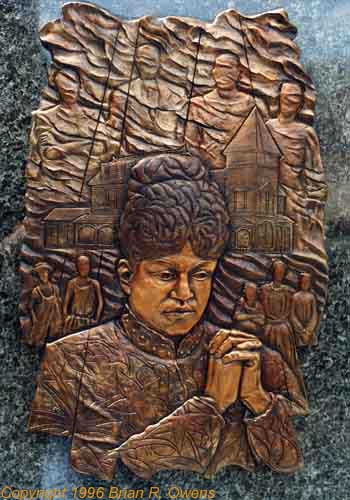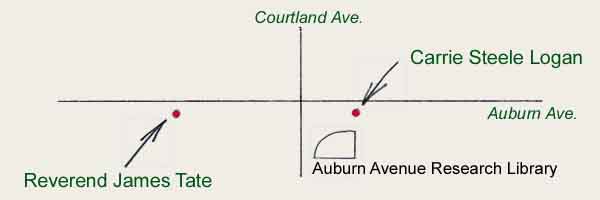 |
|
| Carrie Steele Logan, Humanitarian ? - 1908 |
|
| Cast bronze relief sculpture, unique, height=27"
Commissioned by the Corporation for Olympic Development in Atlanta (CODA) |
|
| Act of Faith
In the decades that followed the Emancipation large numbers of African Americans migrated to Atlanta in search of a better life. This included children, many of whom had been sold apart from their parents and were now left to their own devices to survive. Carrie Steele Logan provided shelter for homeless children by letting them sleep in her home at night. During the day they would play in a railroad boxcar that she had bought for them, while she worked as a stewardess at the Atlanta Union Depot. Carrie Steele Logan sold her possessions, wrote and sold her autobiography, formed a non-profit company and succeeded in raising funds, mostly from private donations. She bought a house, a hospital and a school building and became caretaker of over 200 children. In time, the Steele Orphanage was sold to the City of Atlanta. Logan died in 1908. The orphanage was renamed the Carrie-Steele-Pitts Home and is now located at 667 Fairburn Road N.W., in Atlanta. It has been directed and operated by generations of Carrie Steele Logan's family and their associates to this day. It is no longer an orphanage but a home and safe harbor to children who for various reasons need their help. It is a clean and caring institution that I suspect would satisfy the high expectations of Carrie Steele Logan if she were there to see it. I suspect that the character of Carrie Steele Logan was forged long before the notion of caring for children occurred to her. Little is known of her, but as a single African American woman of modest means, taking homeless children into her home could hardly have been a trivial decision. I believe that Carrie Steele Logan was driven by deeply personal and emotional motives that might defy easy labels such as "maternal instinct" and "empathy". When she bought the boxcar as a day shelter I believe she made a conscious decision to connect herself to the fate of that first group of children, marking a position in her own mind from which retreat was unthinkable. With the boxcar, Carrie Steele Logan committed herself to what was essentially an act of faith about which the remainder of her life would be centered. |
|
| Carrie Steele Logan is one of four historic bronze relief sculptures by Brian R. Owens that are permanently installed at various points on Auburn Avenue in downtown Atlanta, not far from the Martin Luther King Center for Nonviolent Change. | |


